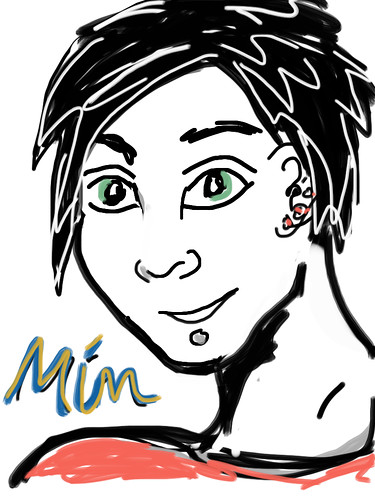-
Why no, there is no practical reason to get one of these. Why yes, I do really really want one.
-
Key quotes: "we break stuff before we know what replaces it, and we invent things before we know what they are for" and "If I’m thinking as a normal consumer, I don’t really care terribly much about what the future of ink on paper is going to be. I care about what the future of content is going to be."
-
Useful reference for the reasonably near future, I suspect.
Author: Alasdair
Links For Monday 14th June 2010
-
This makes me angry on many many levels. Yes, this looks like total waste, and yes, they got a shitty, shoddy website that was massively over-budge. One the other hand, though, the outrage about serious undervalues my profession. £122,000 is *not* an unreasonable amount to spend on a major website in one year, and headlines that suggest it is are fucking annoying to me. What's unreasonable is what they got for their money, not the amount they spent. (FWIW: their initial budget of £45,000, while it would not get them laughed out of the office around here, would definitely put them on the low end of business that we like to pitch for. Since they're a major department, I'd expect a higher budget.)
-
Oh bollocks. Looks like Afghanistan is going to fucked for a very, very long time to come, because it turns out we're not just blowing them up as a point of principle any more. Now they've got useful resources, too.
Links For Monday 7th June 2010
-
Absolutely superb idea – I've been instapapering stuff left and right, thanks to the new toy, so a site that is geared to recommending good Instapaper fodder is a great niche.
Dream Sequence

I’ve been playing with an app called Plastic Bullet on my iphone. It takes an image, and applies a bunch of random filters to make it look like it was taken with a particularly crappy old camera. Most of what it does isn’t fit for anything but amusing myself, but every so often, it throws up a gem, like this one, snapped at the pub yesterday.
Links For Friday 4th June 2010
-
In the course of excoriating BP, a noble end in and of itself, he says this: "You know the best way to get the public to respect your brand? Have a respectable brand. Offer a great, innovative product and make responsible, ethical business decisions." To which I can simply say: Yes. This. Now please all got and read the whole piece, because it's great.
-
You know, I don't think I have a spare 120GB of storage space. I may need to do something about that. In any event, this might well make things interesting over the next while, as people start digging into how much is spent where…
Links For Thursday 3rd June 2010
-
Interesting piece about the mapping of digital community to real-world local-level community.
Links For Wednesday 2nd June 2010
-
Oh look. Facebook "likeing" has security vulnerabilities. At the moment, what's out there appears just to spam your facebook friends by inserting extra "likes" into your feed. Wonder how long before someone uses it to do something more malicious? This is pretty much the ne plus ultra of my problems with Facebook – it's not just that they're shady privacy invading bastards, it's that they're actively encouraging people to have bad security habits, by teaching them to trust things that are not trustworthy, and it's only a matter of time until someone gets seriously screwed by that.
Links For Tuesday 1st June 2010
-
For those of you that have remained with them, here's a step by step guide to sorting out your privacy settings so that they'll give you maximum prviacy, until the next time the rules change. It's over 800 words long, and contains a video, and I'll restrain my ranting for now but the point is that at least you can get the job done.
-
Lovely idea. Wish that a) I had a garden and b) they operated in the UK. Still the US-ians among you might get something tasty out of it.
Self Portrait #1
Links For Thursday 27th May 2010
-
Bookmarking because I want to come back to it and look at any comments, once it's had a chance to garner a few. Work-related, obviously.
